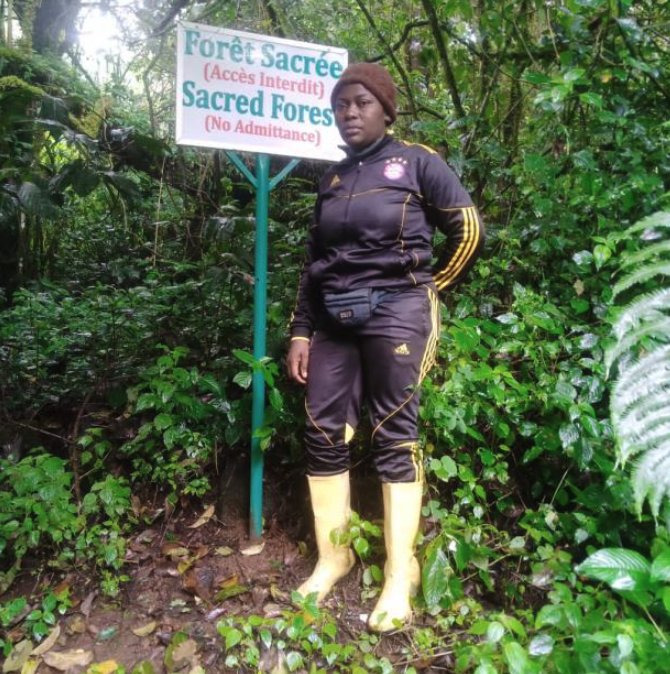She is a fervent advocate for biodiversity conservation and is pursuing a double degree Ph.D. from ERAIFT (DRC) and Wageningen University. Her research focuses on conserving and sustainably managing sacred forests in Cameroon. Beyond academia, she actively participates in conservation initiatives and volunteer work and is dedicated to creating a positive impact through research and advocacy.
Sacred forests exist around the world. In West Africa, these serve as ritual and sacred sites and are also biodiversity hotspots. In the West region of Cameroon, land use change intensified in these areas, becoming increasingly degraded and encroached by human activities. These sacred forests do not have any legal protection and are governed under customary rights. However traditional governance has been eroding, with entry and access rights less enforced and insufficient to prevent anthropogenic activities. This study aims to contribute to improve the governance of sacred forests in West Cameroon by assessing their socio-cultural and political status, and options for the implementation of sustainable governance and management strategies. Through Cartographic mapping, semi-structured interviews, focus group discussions, and questionnaires the state of sacred forests, the quality of governance, and strategies for sustainable management will be known. The study is expected to address a knowledge gap that exists on the state and prospects of sacred forests in Cameroon, thereby contributing to the larger debates on customary governance, forest conservation, and management in Cameroon and the African tropics in general. This study also addresses the significance of sacred forests in connection with the relevant UN Sustainable Development Goals and Global Biodiversity targets.
